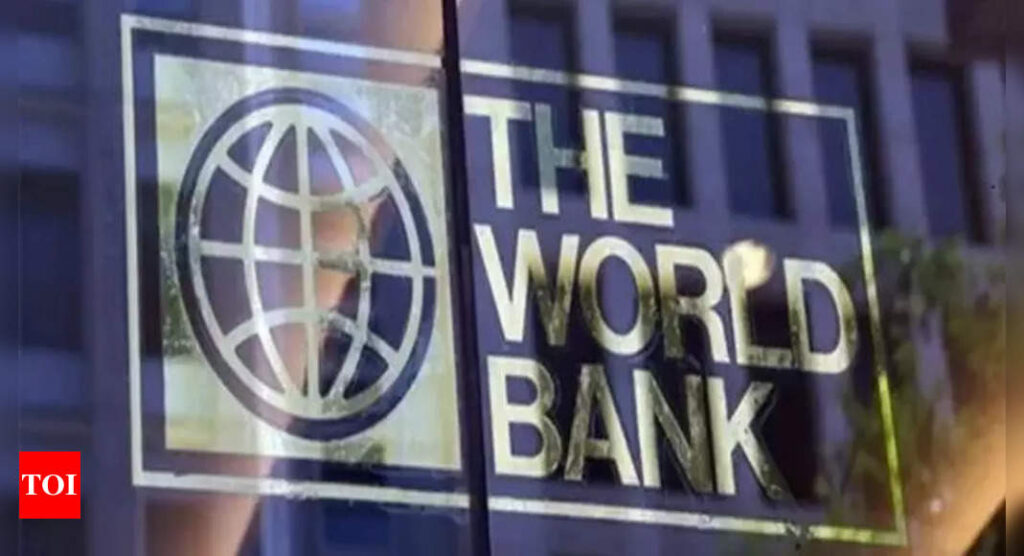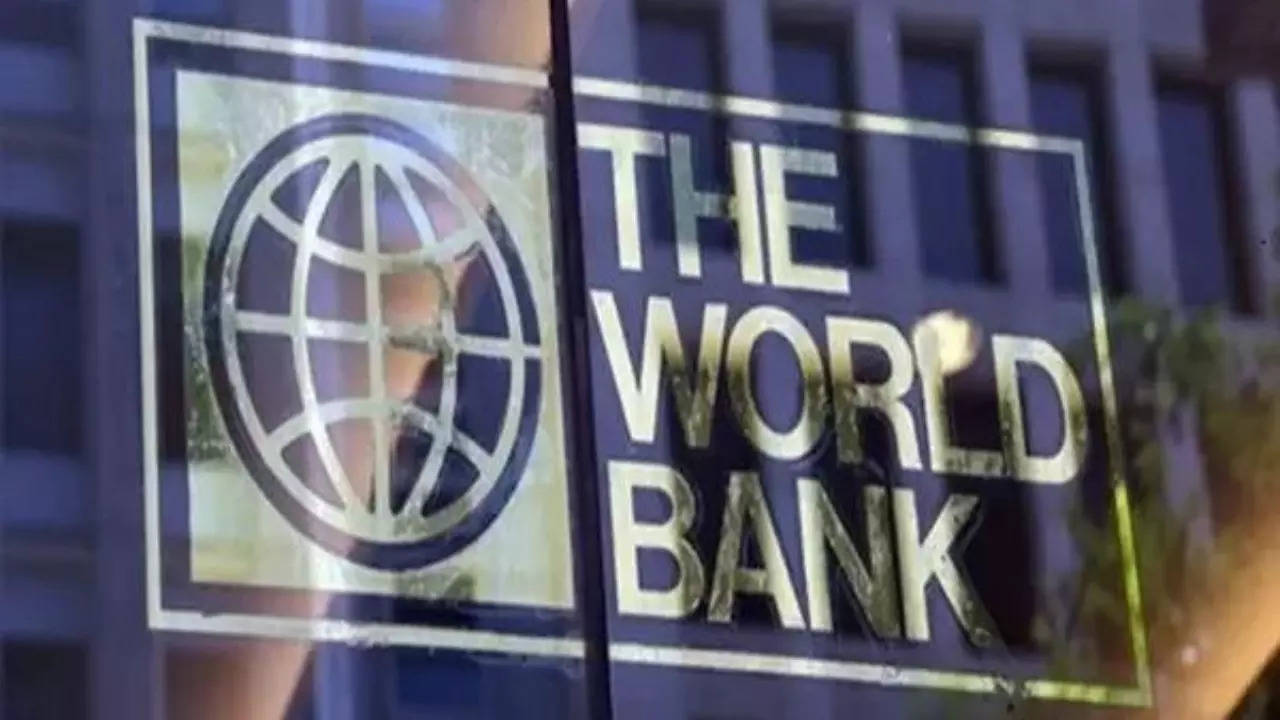[ad_1]
MARRAKESH: Pummelled by debt, poverty and natural disasters, African nations heard many pledges of support but saw little action at the first IMF-World Bank talks to be held on their soil since 1973.
The myriad troubles facing the continent were front and centre at the week-long talks in Marrakesh, Morocco, which began Monday and end Sunday.
The managing director of the International Monetary Fund, Kristalina Georgieva, said from day one that holding the meetings in Africa was “symbolically and substantively very important.”
“A prosperous world economy in the 21st century requires a prosperous Africa,” she said.
The IMF was moving towards giving sub-Saharan Africa a third seat on its executive board.
The move, which will be effective next year, does not increase Africa’s voting power within the international lender, whose main shareholders are the United States, China, Japan and western European powers.
For some African officials, a good start would be erasing the mountain of debt that is forcing many countries to spend much of their revenue on paying back interest.
The economy minister of Ivory Coast, Adama Coulibaly, who heads the G24 group of developing countries, said most of the debt is owed to multilateral development banks and the IMF.
“We are warning against a debt crisis that could stifle durable and inclusive growth,” Coulibaly said.
More than 20 African countries are either already or on the edge of debt distress.
In some countries, more than 40 percent of the state budget goes to servicing the debt — an unsustainable level in countries that need to maintain basic public services such as water and electricity.
But negotiations to restructure debts have become more complicated over the years as new creditors such as China, Saudi Arabia and Brazil have emerged, in addition to private lenders.
Now countries must negotiate terms with China and the Paris Club of creditors, which mostly comprises Western nations with very different policies as Beijing.
– Zambia debt crisis –
One example is Zambia, which defaulted on $18.6 billion in foreign debt during the pandemic in 2020. The country’s debt totalled $32.8 billion at the end of 2022.
For more than two years, the country has been negotiating with creditors led by China — its biggest lender — and France on $6.3 billion of loans.
An agreement in principle was announced in June, but it has yet to be signed.
On Thursday, Georgieva mistakenly announced that a memorandum of understanding was signed to seal the deal.
An IMF spokesperson later clarified that the deal was “nearly finalised” and the signing was “expected soon,” without offering more detail.
Zambia’s debt is preventing the country from spending its budget on programmes that could drive growth.
Finance Minister Situmbeko Musokotwane said in Marrakesh that 90 percent of his country’s budget goes to paying public servants and servicing the debt.
The government has pushed reform to “limit the ability of an administration to go reckless on borrowing, because it is embarrassment for us,” he said.
– ‘Lost decade’ –
The World Bank said earlier this month that growth in sub-Saharan Africa has stalled since 2015 in per capita terms.
The region is projected to contract in per capita terms over the 2021-2025 period, it said, “thus potentially marking a lost decade of growth.”
While they wait for debt relief, African countries complain that the West has been quick to provide huge financial assistance to Ukraine following Russia’s invasion.
The World Bank has provided nearly $20 billion to Kyiv since the start of the war in late February 2022.
The IMF has signed a $15.6 billion aid programme with the Ukrainian government in March as part of a broader, $115 billion deal that includes the G7 and the European Union.
“Everybody agrees that it is important to help Ukraine financially,” an African official told AFP in Marrakesh.
“But in some countries there is a feeling that the urgency is just as important in their countries,” the official said. “But it’s not taken into account in the same way.”
The myriad troubles facing the continent were front and centre at the week-long talks in Marrakesh, Morocco, which began Monday and end Sunday.
The managing director of the International Monetary Fund, Kristalina Georgieva, said from day one that holding the meetings in Africa was “symbolically and substantively very important.”
“A prosperous world economy in the 21st century requires a prosperous Africa,” she said.
The IMF was moving towards giving sub-Saharan Africa a third seat on its executive board.
The move, which will be effective next year, does not increase Africa’s voting power within the international lender, whose main shareholders are the United States, China, Japan and western European powers.
For some African officials, a good start would be erasing the mountain of debt that is forcing many countries to spend much of their revenue on paying back interest.
The economy minister of Ivory Coast, Adama Coulibaly, who heads the G24 group of developing countries, said most of the debt is owed to multilateral development banks and the IMF.
“We are warning against a debt crisis that could stifle durable and inclusive growth,” Coulibaly said.
More than 20 African countries are either already or on the edge of debt distress.
In some countries, more than 40 percent of the state budget goes to servicing the debt — an unsustainable level in countries that need to maintain basic public services such as water and electricity.
But negotiations to restructure debts have become more complicated over the years as new creditors such as China, Saudi Arabia and Brazil have emerged, in addition to private lenders.
Now countries must negotiate terms with China and the Paris Club of creditors, which mostly comprises Western nations with very different policies as Beijing.
– Zambia debt crisis –
One example is Zambia, which defaulted on $18.6 billion in foreign debt during the pandemic in 2020. The country’s debt totalled $32.8 billion at the end of 2022.
For more than two years, the country has been negotiating with creditors led by China — its biggest lender — and France on $6.3 billion of loans.
An agreement in principle was announced in June, but it has yet to be signed.
On Thursday, Georgieva mistakenly announced that a memorandum of understanding was signed to seal the deal.
An IMF spokesperson later clarified that the deal was “nearly finalised” and the signing was “expected soon,” without offering more detail.
Zambia’s debt is preventing the country from spending its budget on programmes that could drive growth.
Finance Minister Situmbeko Musokotwane said in Marrakesh that 90 percent of his country’s budget goes to paying public servants and servicing the debt.
The government has pushed reform to “limit the ability of an administration to go reckless on borrowing, because it is embarrassment for us,” he said.
– ‘Lost decade’ –
The World Bank said earlier this month that growth in sub-Saharan Africa has stalled since 2015 in per capita terms.
The region is projected to contract in per capita terms over the 2021-2025 period, it said, “thus potentially marking a lost decade of growth.”
While they wait for debt relief, African countries complain that the West has been quick to provide huge financial assistance to Ukraine following Russia’s invasion.
The World Bank has provided nearly $20 billion to Kyiv since the start of the war in late February 2022.
The IMF has signed a $15.6 billion aid programme with the Ukrainian government in March as part of a broader, $115 billion deal that includes the G7 and the European Union.
“Everybody agrees that it is important to help Ukraine financially,” an African official told AFP in Marrakesh.
“But in some countries there is a feeling that the urgency is just as important in their countries,” the official said. “But it’s not taken into account in the same way.”
[ad_2]
Source link











More Stories
India’S Growth Forecast: S&P ups India’s FY’24 growth forecast to 6.4% on robust domestic momentum
India to remain fastest-growing major economy, but demand uneven: Poll
Jack Ma: Jack Ma gets back into business with ‘Ma’s Kitchen Food’